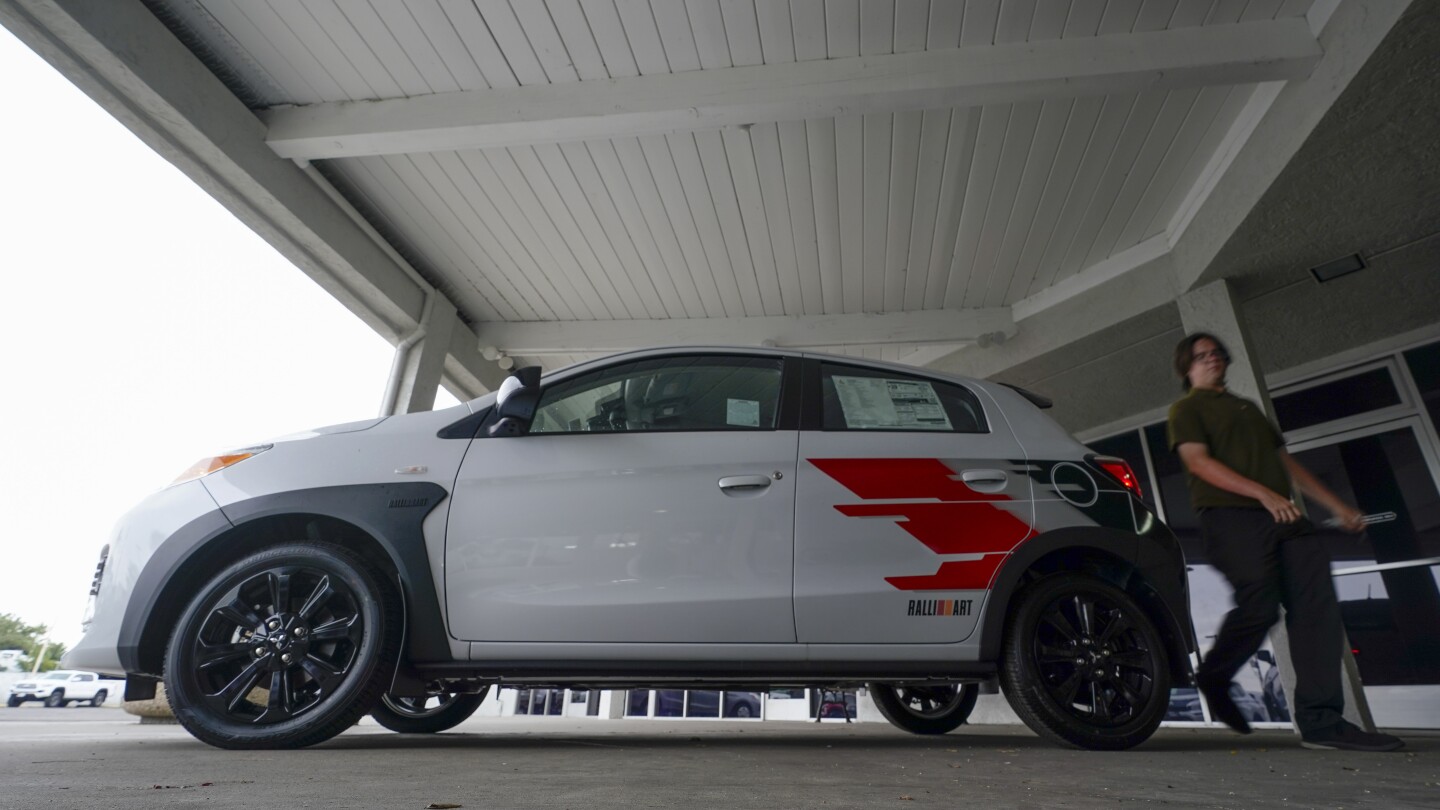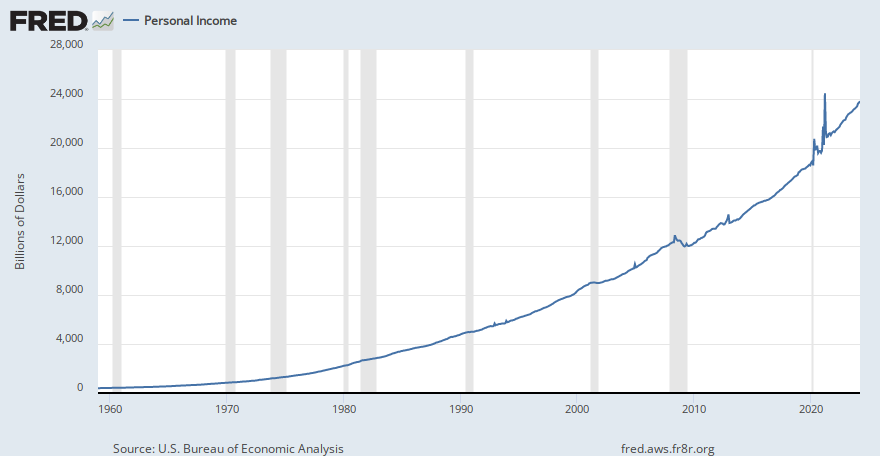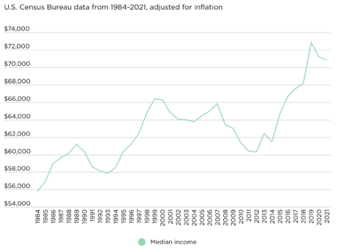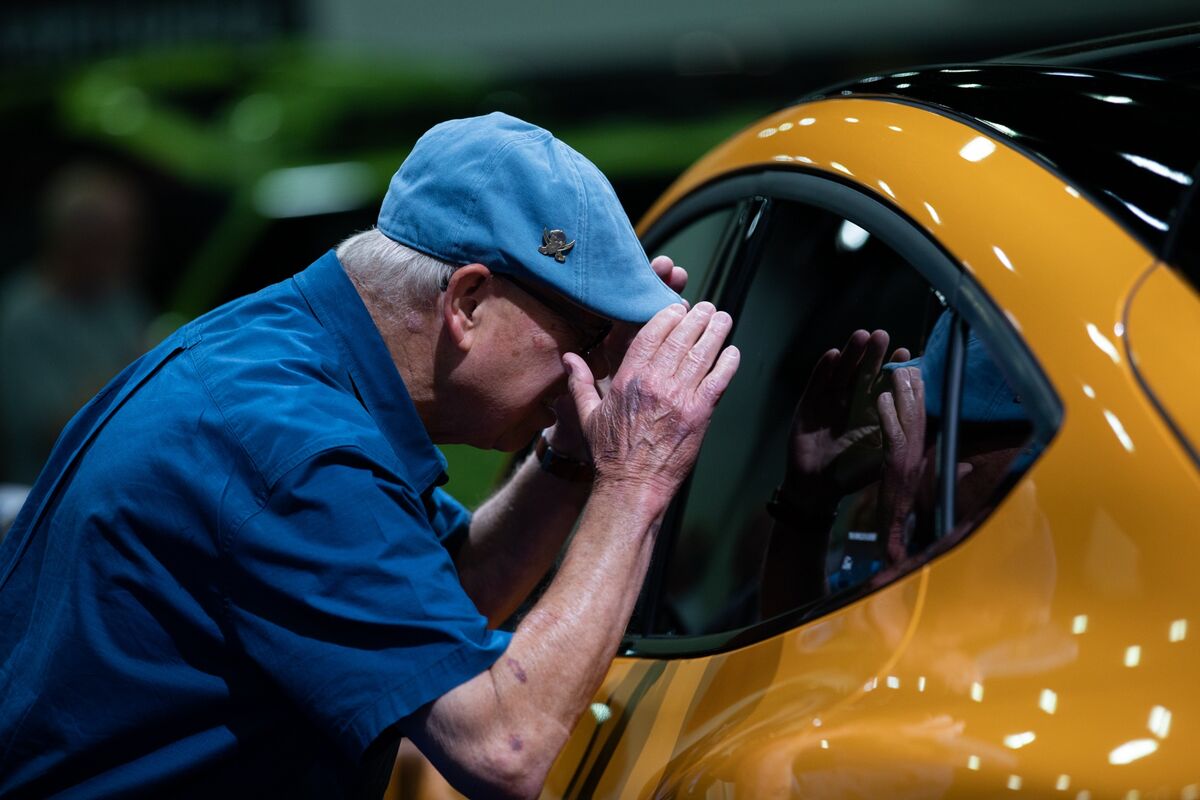Ah, your census numbers are real, not nominal, and don't include 22 or half of 23. Mine are nominal, and total population. So, we can split the difference and say nominal income went up 10-12% during the last few years, similar to inflation. (Ofc, all the boomers moving into retirement are losing income... working folks could be going up to compensate.)
Your 25% increase is a nominal figure too.
So, yeah, new car prices went up
13-15% = 25-(10-12) more than incomes in three years. But not 27% = (25 - (-2)).
I don't see any reason for that other than profit taking by manufacturers in a low margin business during a high inflation period. I am sure everyone is pointing the finger at someone else.... supply chains. Russia. Oil. Whatever.
In reality, the car makers are trying to remake their business in a very expensive way (EV's) at a time when ICE volume is down and falling (since 2017). So its not surprising they are jacking prices, and shifting to more luxury models. Its capitalism.
The poorest folks that are struggling to cover car costs are not buying 3 yo used cars. They are buying 7-10 yo used cars. And there were lots of improvements to safety 2013-2016, better collision testing, backup cameras, etc. And the Obama CAFE regs had started to roll through by then.
But, as
@bholler points out, used car prices are up even more.... but, I hear, are falling now.

 apnews.com
apnews.com





